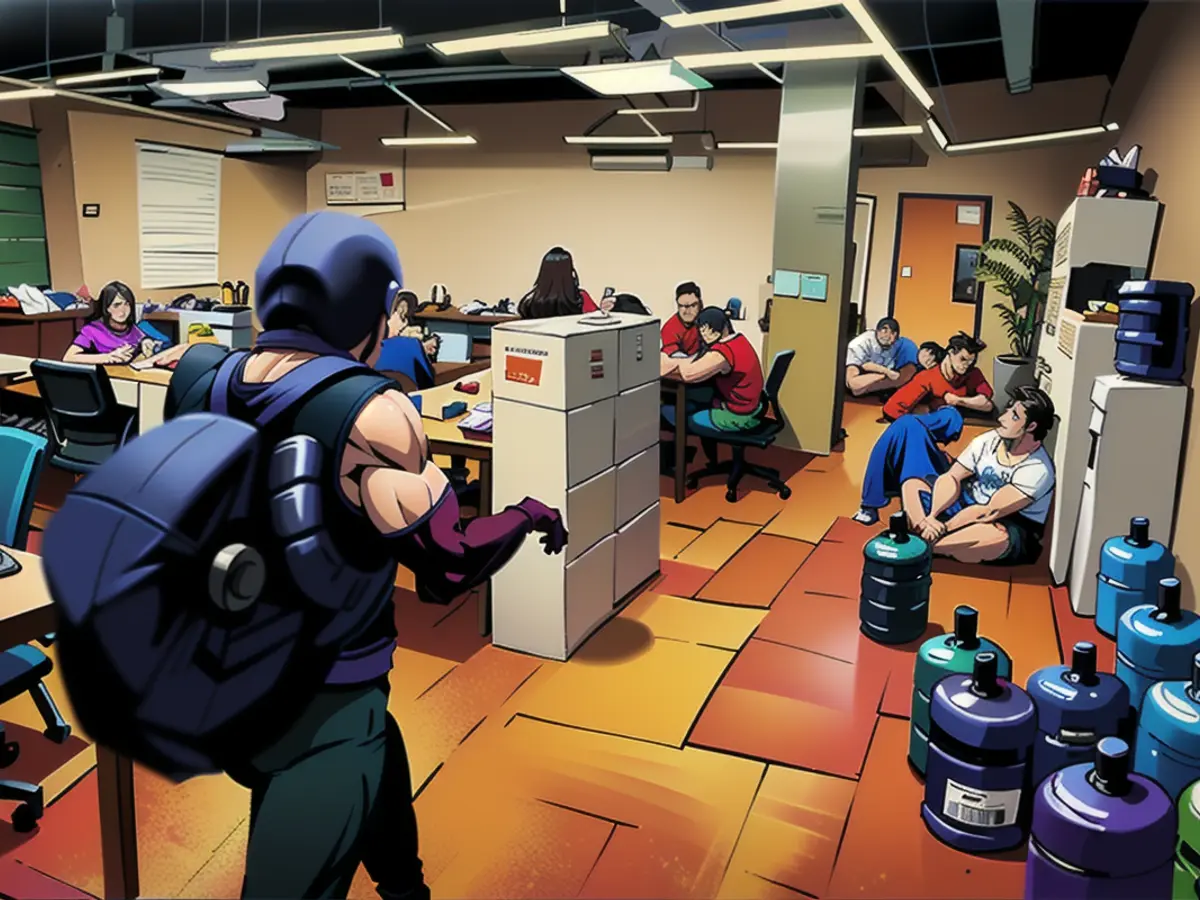Philippine police rescue 2,700 enslaved workers from offshore gambling centers
The Philippine National Police (PNP) anti-cybercrime team conducted a series of raids in Manila on Tuesday and rescued more than 2,700 suspected enslaved workers, according to law enforcement agencies.
PNP officials said the operation targeted numerous companies operating offshore gaming operations, known locally as Philippine Offshore Gaming Operators (POGOs). According to police, 2,714 people believed to be forced laborers were rescued in Las Pinas City, Manila.
"All rescued individuals will be documented for booking and possible repatriation," a statement from the National Capital Region Police Department said.
POGOs were approved during Rodrigo Duterte’s presidential term (June 2016 to June 2022). These online gambling sites are not allowed to accept players from the Philippines, but instead target players from other countries, especially China, where most gambling is illegal.
Slaves are freed
Philippine police said 1,528 of the more than 2,700 workers believed to be involved in forced labor were Filipino residents. 600 of them are from China, 183 from Vietnam and 137 from Indonesia.
Rescue Origin
- Philippines – 1,528
- China – 600 Vietnam – 183
- Indonesia – 137 Malaysia – 134
- Thailand – 81 Taiwan – 21 Nigeria – 7 Yemen – 4
- Pakistan – 2
- South Africa – 2
- India – 1
- Somalia – 1
- Sudan – 1
- Cameroon – 1
- Iran – 1
POGOs have been criticized by foreign governments, particularly the Chinese Communist Party, for promoting "online gambling sites" to people who are barred from accessing such games over the Internet. Duterte considered terminating the deal but decided the tax benefits for such online casino sites were too important.
“I decided we needed it to serve the interests of our country,” Duterte said in 2019.
Duterte’s successor, Philippine President Bonbong Marcos, has so far allowed the POGO industry to continue to grow. But this week's crackdown on enslaved workers suggests the industry is subject to tighter law enforcement oversight.
Discontinuation Notice
The U.S. State Department warned tourists this month that casinos across Asia are increasingly being used for human trafficking, sometimes called "modern slavery." The federal agency's 2023 Trafficking in Persons Report describes the example of a 26-year-old woman from the Philippines who responded to an online job ad to work at a call center in Cambodia.
After a trip to Cambodia, the then-pregnant woman was enslaved and forced to work for a fraudulent cryptocurrency project. She later lost her unborn child before successfully escaping.
The Philippine Amusement and Gaming Corporation (PAGCOR) this week issued a warning against "offshore gambling-related employment" positions as Philippine police infiltrate online gaming companies suspected of human rights abuses.
“These job ads typically seek out potential customer service representatives with cryptocurrency trading experience and lure unsuspecting victims with high-paying jobs and numerous attractive benefits, only to be exploited for fraudulent activity,” the notice states. The Gaming Operators Regulatory Authority urged Filipinos to “remain vigilant and cautious about these job advertisements.”
Read also:
- Games Industry Research: Carbon Emissions of Top Video Games
- U.S. cities with the most Swifties per capita
- Blackjack Casino Advantage: How to Beat the Odds
- Football 101: What is relegation in football?
Source: www.casino.org








